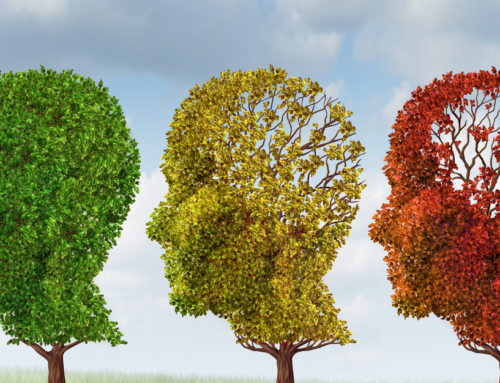
Do you like to play a little Candy Crush or surf Facebook before bed? Or maybe you’re vegging out in front of your giant LED television or reading a novel on your iPad. Then when you turn the lights off you toss and turn frustratingly into the wee hours of the morning, glancing constantly at the bright blue numbers on your alarm clock just inches from your face. You’re not alone – Americans are alarmingly insomniatic and sleep-deprived these days.
The CDC says insufficient sleep is a public health epidemic and research has established that the constant exposure to blue light from electronic devices is a major culprit. If you have Hashimoto’s hypothyroidism, this can further disrupt an already delicately balanced immune system and make managing Hashimoto’s more difficult.
How smart phones, computers, tablets, and TVs cause insomnia and wreck your health if you have Hashimoto’s hypothyroidism
The bad news is not only are these much-loved devices causing chronic insomnia, but also long-term health problems because of the blue light they emit. Our brains perceive blue light as daytime light, which suppresses melatonin, the sleep hormone. Melatonin also plays a role in immune function, and chronic melatonin suppression has been linked to a higher risk of prostate, colorectal and breast cancers. Chronic sleep deprivation is also linked to obesity, diabetes, chronic inflammation, and other metabolic disorders. For the person trying to manage Hashimoto’s hypothyroidism, this is another obstacle that can sabotage your success.
In the latest study that looked at the effects of these devices on sleep, one group of subjects read on an iPad for four hours before bed while the other group read from a printed book in dim light. After a week, the groups switched. In just five nights, the iPad group displayed reduced levels of melatonin, they took longer to fall asleep, and they spent less time in the restorative REM sleep They also reported being sleepier and less alert in the morning, even after 8 hours of sleep, and showed disruption in their sleep-wake cycle, or circadian rhythm.
Because blue-light emitting devices have such profound biological effects, the research team proposed they be subjected to the same safety evaluations as drugs. A sleep poll shows 95 percent of Americans uses some kind of light-emitting device at least a few nights a week before bed, making this a national concern.
What to do to sleep better without totally unplugging
The obvious answer to sleep better is to quit using blue-light emitting devices at nightfall. But for most Americans that’s simply asking too much. Luckily strategies exist to protect your melatonin production when you have Hashimoto’s hypothyroidism:
- Use the Kindle e-reader that does not have a backlit screen. Or just read a regular book.
- Put orange bulbs in your lamps that you use at night, especially next to your bed.
- The simplest way to protect yourself from blue light at night is to wear orange glasses. You can buy a cheap pair from Amazon or choose from more style options at Low Blue Lights.
- Install the f.lux app on your computer or Android phone (it won’t work for iPhones). This turns the light on your screen an orangeish-pink hue.
Ask my office for other ways to support healthy sleep and Hashimoto’s hypothyroidism.





